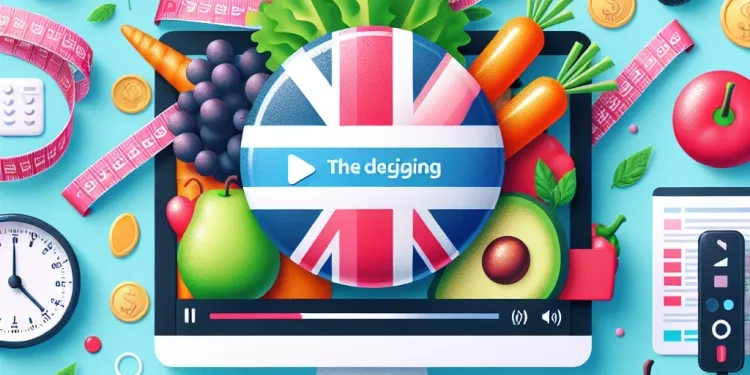
Find Help
More Items From Ergsy search
-
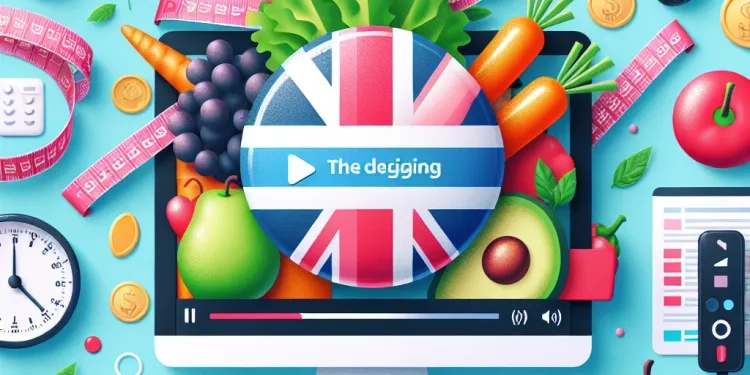
What role does diet play in managing obesity?
Relevance: 100%
-

Obesity
Relevance: 74%
-
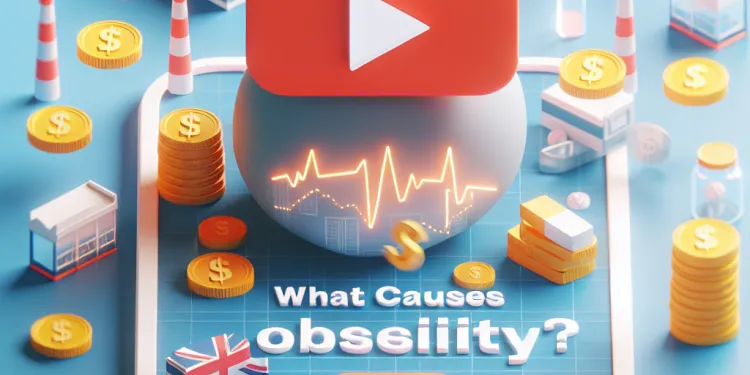
What causes obesity?
Relevance: 65%
-
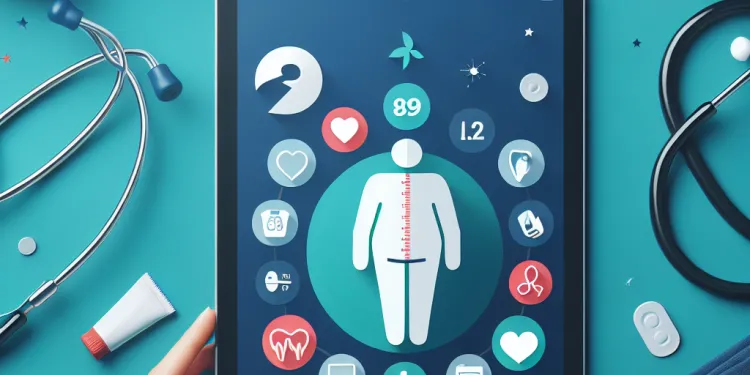
What treatments are available for obesity?
Relevance: 63%
-
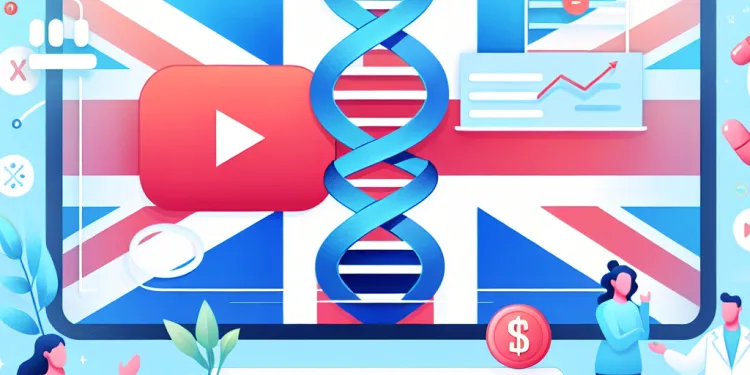
Can genetics influence obesity?
Relevance: 62%
-
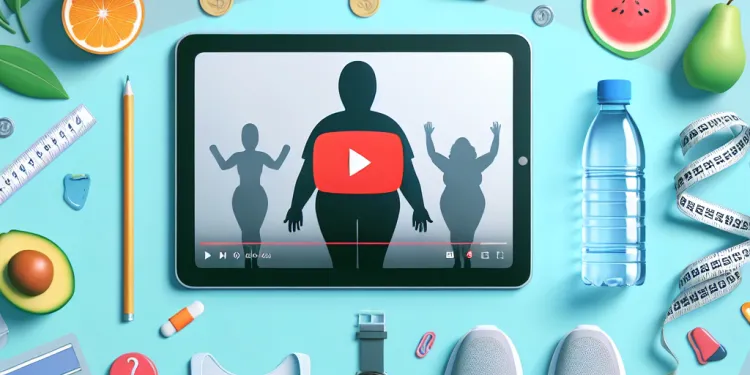
How can obesity be prevented?
Relevance: 62%
-
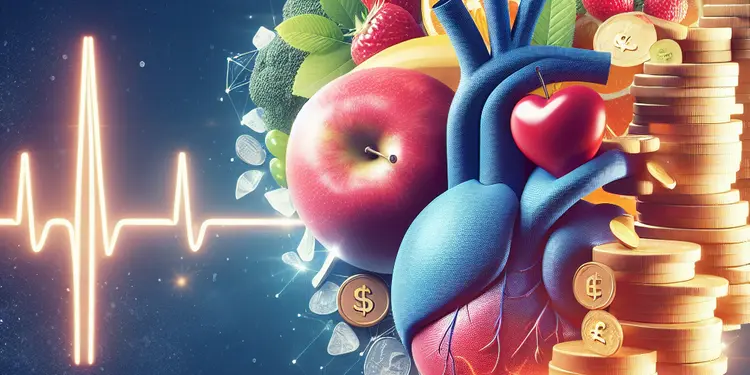
What is the role of diet in managing heart failure?
Relevance: 58%
-
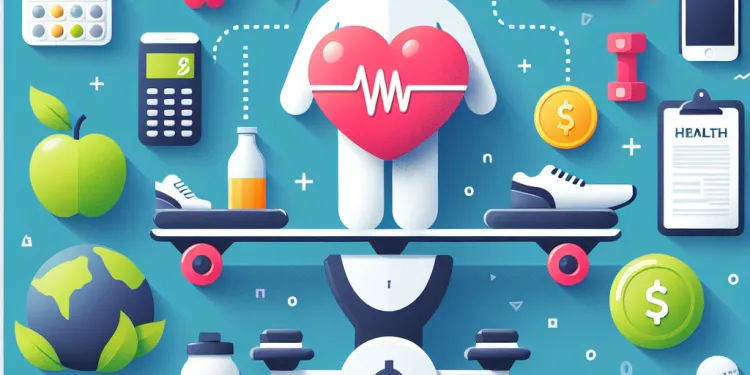
What health risks are associated with obesity?
Relevance: 57%
-
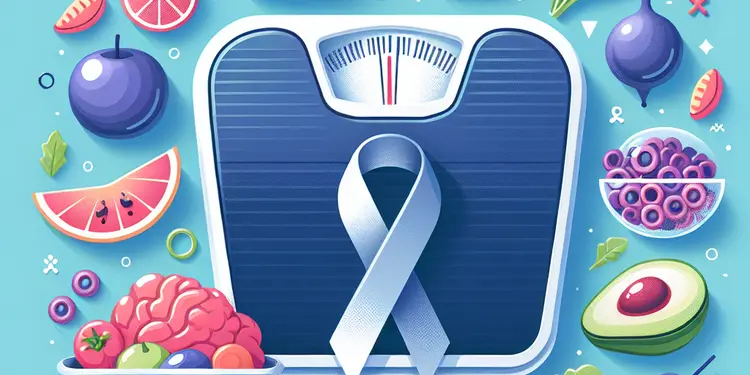
How does obesity affect bowel cancer rates?
Relevance: 56%
-

Do weight loss jabs work for all types of obesity?
Relevance: 55%
-
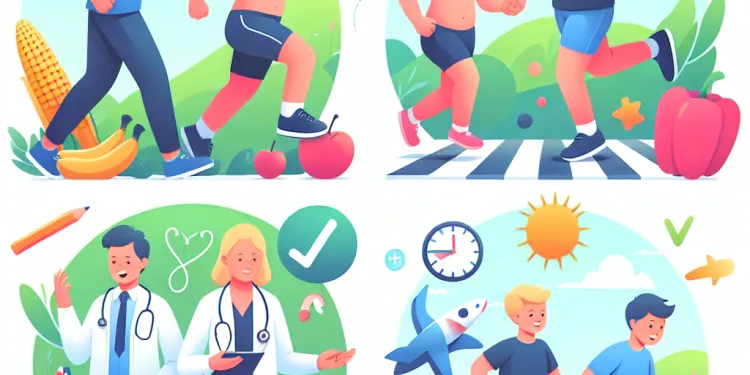
Is childhood obesity a concern in the United Kingdom?
Relevance: 55%
-
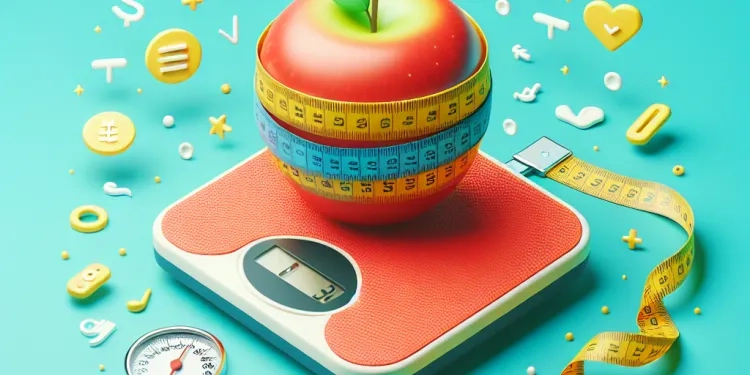
How is obesity measured?
Relevance: 55%
-

Is childhood obesity a concern in the United Kingdom?
Relevance: 53%
-
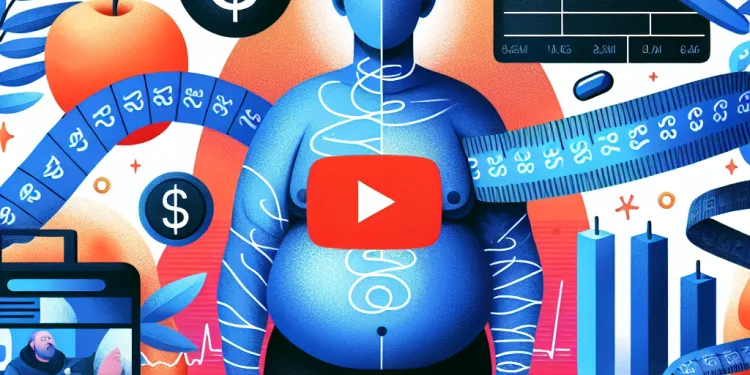
What is the impact of obesity on mental health?
Relevance: 53%
-

Study Finds Alarming Increase in Childhood Obesity Rates Post-Pandemic
Relevance: 52%
-
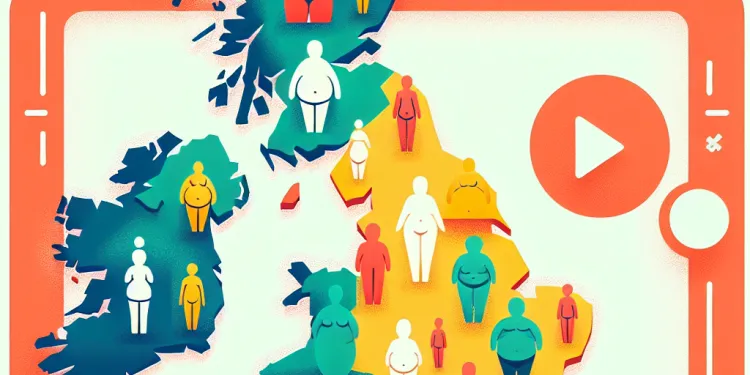
Is obesity more prevalent in certain regions of the UK?
Relevance: 52%
-

What are the current statistics on childhood obesity in the UK?
Relevance: 51%
-

What type of research supports the role of diet in prostate cancer management?
Relevance: 51%
-

Are there any societal factors that contribute to obesity?
Relevance: 50%
-
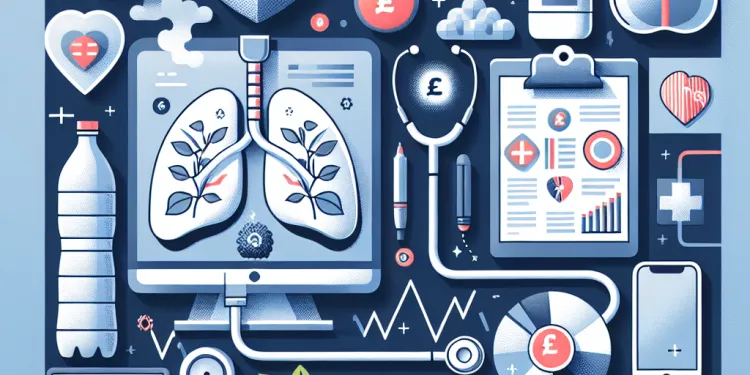
Can diet affect asthma?
Relevance: 49%
-

How important is physical activity in preventing obesity?
Relevance: 49%
-

Can diet affect psoriasis?
Relevance: 48%
-

What role do sugary drinks play in obesity?
Relevance: 47%
-

Can diet impact BPH?
Relevance: 46%
-
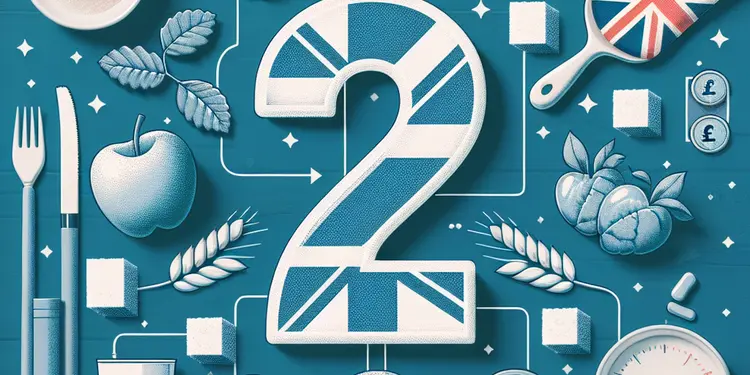
What is the role of sugar in a balanced diet?
Relevance: 46%
-
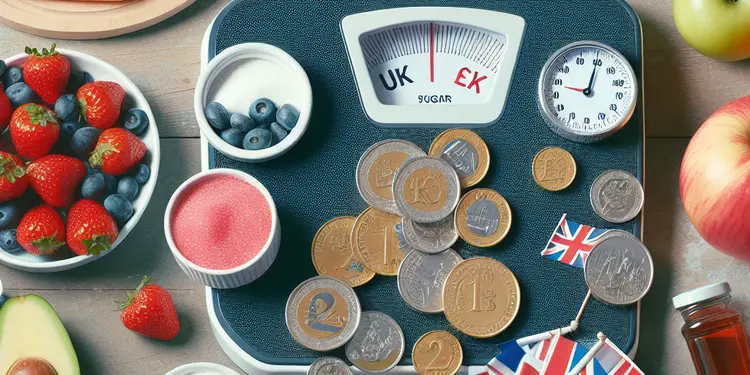
What impact has the sugar tax had on obesity rates?
Relevance: 44%
-

Can junk food be part of a balanced diet?
Relevance: 43%
-

Do you need to follow a specific diet while on Wegovy?
Relevance: 43%
-

What is the DASH diet?
Relevance: 43%
-
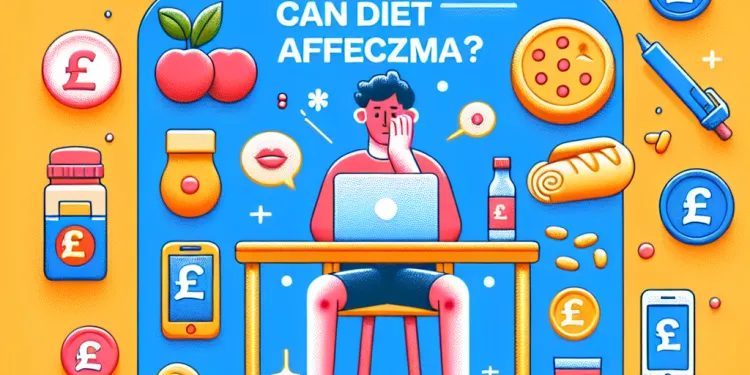
Can diet affect eczema?
Relevance: 42%
-

What role does diet play in the risk of developing bowel cancer?
Relevance: 42%
-

Is Wegovy used for type 2 diabetes management?
Relevance: 42%
-

Understanding the Benefits of the Mediterranean Diet
Relevance: 41%
-
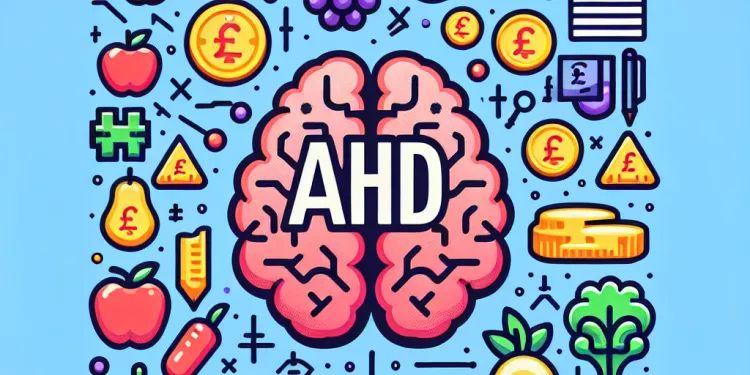
Can diet affect ADHD symptoms?
Relevance: 41%
-
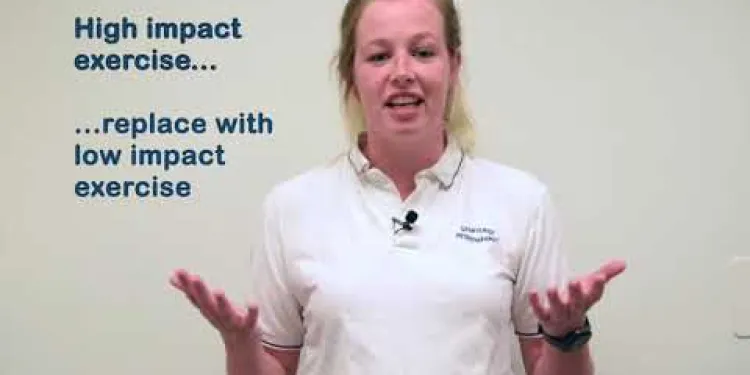
Prolapse Management
Relevance: 41%
-
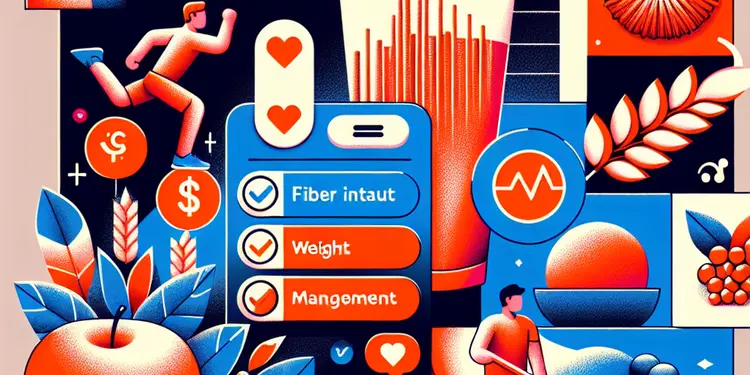
Can fiber help with weight management?
Relevance: 41%
-

Is diet linked to the rise in bowel cancer?
Relevance: 41%
-
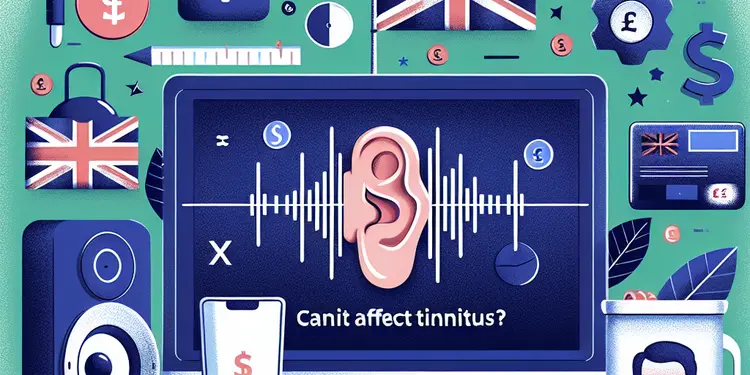
Can diet affect tinnitus?
Relevance: 40%
-
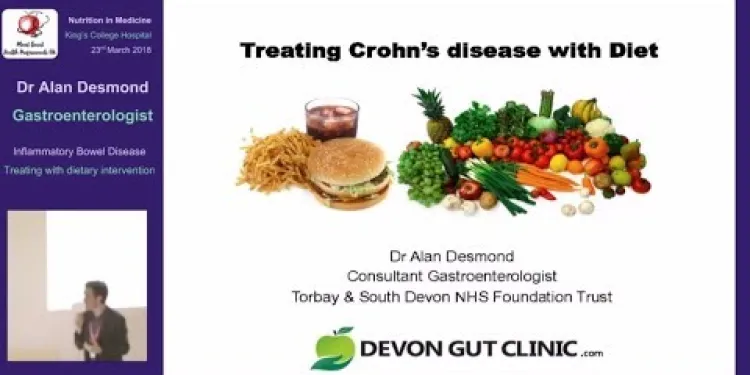
What is the best diet for Crohn’s disease?
Relevance: 40%
-
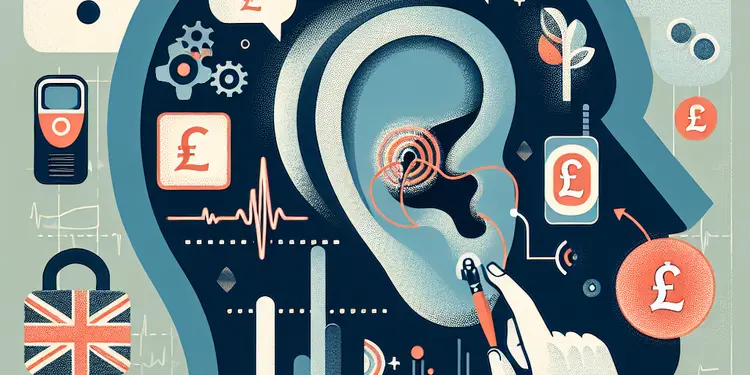
Can lifestyle changes help manage tinnitus?
Relevance: 40%
The Role of Diet in Managing Obesity
Understanding Obesity
Obesity is a complex health condition characterised by excessive body fat accumulation that presents a risk to health. In the United Kingdom, obesity rates have been rising, becoming a significant public health concern. The role of diet in managing obesity is crucial as it directly impacts body weight and overall health.
Healthy Eating Habits
Adopting healthy eating habits is essential for managing and preventing obesity. A balanced diet rich in fruits, vegetables, lean proteins, and whole grains helps maintain a healthy weight. Reducing the intake of sugary beverages, processed foods, and high-calorie snacks is also critical. Portion control and mindful eating can significantly assist in avoiding overeating and making healthier food choices.
Caloric Balance and Weight Management
The concept of caloric balance is fundamental to managing obesity. Consuming fewer calories than the body expends leads to weight loss, which can help manage obesity. It is vital to sustain a calorie deficit by not only reducing calorie intake but also by increasing physical activity. However, it is equally important to ensure nutritional adequacy, even when in a calorie deficit, to prevent deficiencies and promote overall well-being.
The Role of Professional Guidance
Professional guidance from dietitians and healthcare providers can be invaluable for individuals struggling with obesity. Personalised dietary plans consider an individual's health conditions, dietary preferences, and lifestyle, ensuring a tailored approach to weight management. In some cases, medical interventions or special dietary programs, such as low-calorie meals or meal replacements, may be recommended.
Lifestyle Interventions Beyond Diet
While diet plays a crucial role in managing obesity, it is not the only factor. A comprehensive approach includes regular physical activity, behavioural changes, and psychological support. Combining dietary modifications with these elements can enhance the effectiveness of obesity management strategies, ultimately leading to sustainable weight loss and improved health outcomes for individuals living in the UK.
The Role of Diet in Managing Obesity
Understanding Obesity
Obesity means having too much body fat, which can make you unhealthy. In the UK, more people are becoming obese, and it is a big health problem. What we eat is very important in controlling obesity because it affects our weight and health.
Healthy Eating Habits
Eating healthy is important to avoid and manage obesity. We should eat a balanced diet with fruits, vegetables, lean meats, and whole grains to keep a healthy weight. We should eat less sugary drinks, packaged foods, and high-calorie snacks. Eating smaller portions and being aware of what we eat can help stop overeating and make better food choices.
Caloric Balance and Weight Management
Caloric balance means eating the right amount of calories. If you eat fewer calories than your body uses, you can lose weight, which helps with obesity. You need to eat less and move more to lose weight. It is still important to eat the right foods to stay healthy while losing weight.
The Role of Professional Guidance
Help from diet experts and doctors can be very useful for people dealing with obesity. A special diet plan can be made just for you, based on what you like to eat and your lifestyle. Sometimes, doctors might suggest special diets or meal replacements.
Lifestyle Interventions Beyond Diet
Besides diet, other things can help manage obesity. This includes regular exercise, changing habits, and getting support for mental health. Combining a healthy diet with these other actions can help manage obesity better, leading to weight loss and better health for people in the UK.
Frequently Asked Questions
What is the main cause of obesity?
Obesity is primarily caused by an imbalance between calories consumed and calories expended, resulting in excess body fat. Diet plays a crucial role, as high-calorie, poor-nutrient foods can contribute to weight gain.
How does diet affect obesity management?
Diet is central to managing obesity. Choosing nutrient-rich foods, controlling portion sizes, and reducing calorie intake can help individuals lose weight and maintain a healthy weight.
What types of foods should be avoided to manage obesity?
To manage obesity, it's advisable to limit foods high in sugar, saturated fats, and processed ingredients such as sugary drinks, pastries, fried foods, and ready-made meals.
Are there specific diets recommended for weight loss?
Yes, diets such as the Mediterranean, DASH, or low-carbohydrate diets are often recommended for weight loss as they focus on whole, nutrient-dense foods while limiting calorie-rich, processed foods.
How important is portion control in an obesity diet plan?
Portion control is very important, as it helps manage calorie intake. Even healthy foods can contribute to weight gain if eaten in large quantities.
Can a balanced diet replace exercise in obesity management?
While a balanced diet is crucial, it's most effective when combined with regular physical activity. Exercise helps burn calories, support metabolism, and maintain weight loss.
How can someone ensure they are getting the right nutrients while losing weight?
Ensuring a diet rich in fruits, vegetables, lean proteins, and whole grains can provide essential nutrients. Consulting a dietitian can also help tailor a plan to individual needs.
What role does meal planning play in managing obesity?
Meal planning helps in making healthier food choices, controlling portion sizes, and reducing the temptation of eating high-calorie foods, thus supporting weight management.
Is it necessary to count calories when trying to lose weight?
Counting calories can help some individuals manage their weight, but others might find focusing on eating a balanced diet with proper portion sizes more sustainable.
Can adopting a vegetarian or vegan diet help with obesity?
Both vegetarian and vegan diets can aid in weight loss when well-planned to include a variety of nutrients while being lower in calories compared to typical Western diets.
Are there any particular foods that aid in weight loss?
Fibrous foods such as fruits, vegetables, whole grains, and proteins like lean meats, fish, and legumes can aid in weight loss due to their satiating properties and lower calorie content.
How can one manage cravings while following a weight loss diet?
Managing cravings can be achieved by ensuring adequate protein intake, staying hydrated, and allowing occasional treats in moderation.
Can drinking water contribute to weight loss?
Yes, drinking water can aid weight loss by promoting satiety, helping to reduce calorie consumption, and boosting metabolism slightly.
How does sugar consumption impact obesity?
High sugar consumption can lead to weight gain due to the high calorific value and little nutritional benefit, often promoting excess calorie intake and fat storage.
Is breakfast important in a diet plan to combat obesity?
A healthy breakfast can kickstart metabolism and prevent overeating later in the day. Choosing nutrient-rich options like oatmeal, fruits, or proteins is beneficial.
Why do people get very overweight?
Being very overweight, called obesity, happens when people eat too many calories but don't use them all up. This makes extra body fat. Eating lots of sugary or fatty foods can make people gain weight. It's important to eat healthy foods.
How does food help with weight control?
Eating the right food can help you stay healthy. To manage being overweight, it's important to eat foods that are good for your body. Eat smaller amounts, and try to eat fewer calories. This can help you lose weight and stay at a healthy weight.
What foods should I not eat if I want to stay healthy?
Here are some foods to eat less of to help manage weight:
- Foods that are fried, like fries and fried chicken.
- Sweet things, like candy and cake.
- Fast food, like burgers and pizza.
- Drinks with lots of sugar, like soda and some juices.
Tips to help you:
- Eat more fruits and veggies.
- Drink water instead of soda.
- Look for apps to help you make healthy food choices.
If you want to manage your weight, try not to eat too much sugar, fatty foods, and things that come in packets. It’s best to skip sugary drinks, cakes, fried foods, and meals that come ready to eat.
What foods can help you lose weight?
Do you want to lose weight? Eating healthy foods can help. Here are some tips to make it easier:
- Eat lots of fruits and vegetables. They are good for you.
- Choose whole grains like brown bread or rice.
- Drink water instead of soda or juice.
- Try to eat smaller portions of food.
- Stay active by playing or going for a walk.
Using a food chart can help you choose good foods. Talk to someone who knows about healthy eating, like a doctor or dietitian. They can give you good advice.
Yes, some diets can help you lose weight. These include the Mediterranean diet, DASH diet, and low-carb diet. They focus on healthy foods and help you eat less junk food.
You can use tools like a food diary to track what you eat. Ask someone to help you if you need it.
Why is it important to eat the right amount of food when trying to lose weight?
Eating the right amount of food helps us stay healthy. It is important to know how much food to eat. This can help us when trying to lose weight.
Here are some tips to help:
- Use a small plate to help eat less.
- Eat slowly and stop when you feel full.
- Ask someone to help you if you are not sure how much to eat.
Eating the right amount of food is important. It helps us control calories we eat. Even good foods can make us gain weight if we eat too much of them.
Can eating healthy food help you lose weight without exercise?
Eating healthy food is important. But it works best when you also exercise. Exercise helps your body use energy, makes you feel better, and helps you stay at a healthy weight.
How can you make sure you get the right food when losing weight?
When you want to lose weight, it's important to eat healthy foods. Here are some tips:
- Eat fruits and vegetables every day. They are full of good stuff your body needs.
- Choose whole grains like brown bread and brown rice. They give you energy.
- Eat some protein, like chicken, beans, or eggs. This helps your muscles stay strong.
Remember to drink plenty of water! Water helps you stay healthy and feel good.
A good way to keep track is to use a food diary. Write down what you eat each day.
Ask a grown-up or a doctor if you need help.
Eating lots of fruits, vegetables, lean meats, and whole grains is healthy. These foods have important vitamins and minerals.
A diet expert, called a dietitian, can make a special eating plan just for you.
How can planning meals help with losing weight?
Planning meals means thinking ahead about what to eat. It helps make healthy choices. This can be important for losing weight.
Here are some ways planning meals can help:
- Pick Healthy Foods: You can choose fruits, vegetables, and other good foods.
- Stay on Track: You will be less likely to eat junk food.
- Save Money: Buying only what you need can cost less.
- Eat Right Amount: You can decide how much to eat.
Tools to help with meal planning:
- Use a chart to list meals.
- Ask a friend or family for help.
- Use apps on phones for meal ideas.
- Plan meals at a time that’s good for you.
With planning, it's easier to eat better and stay healthy!
Planning meals helps you eat healthy food. It makes sure you eat the right amount and stops you from choosing foods that make you gain weight. This helps you keep a healthy weight.
Do I need to count calories to lose weight?
Counting every calorie can be hard.
Instead, you can try to eat healthy foods and move more.
You can keep a simple food diary to track what you eat.
Talk to a friendly expert for help, like a doctor.
Remember, it's more important to eat well and stay active!
Counting calories can help some people keep track of their weight. But, for other people, it might be easier to eat a mix of healthy foods and the right amount of food. This can be a better way to stay healthy for a long time.
Can eating no meat help people lose weight?
Eating a vegetarian or vegan diet can help you lose weight. This means not eating meat and sometimes not eating eggs or dairy either. You need to make sure you eat different kinds of healthy foods. It is important to eat fewer calories than most people usually do.
What foods can help you lose weight?
Some foods can help you lose weight. These foods are healthy and make you feel full. Eating these foods can give you energy and help you stay strong. Here are some tips:
- Fruits and Vegetables: These are full of vitamins and are good for you. Try to eat colorful fruits and veggies.
- Whole Grains: Foods like brown rice and whole wheat bread are good. They fill you up and give you energy.
- Lean Proteins: Chicken, fish, and beans are examples. They help build muscles and keep you full.
- Drink Water: Water keeps you hydrated. It also helps your body work well.
Remember to eat a little bit of different foods. This way, you get all the things your body needs. You can also talk to a doctor or a dietician for more help. They can give you advice that is right for you.
Eating foods with fiber can help you lose weight. These foods include fruits, vegetables, whole grains, and proteins. Proteins are found in lean meats, fish, and beans. These foods help you feel full and have fewer calories.
How can you control cravings when trying to lose weight?
Sometimes, you feel like eating yummy food, even when you are on a diet. This is called a craving. Here are some easy ways to help:
1. Drink Water: If you feel hungry, try drinking a glass of water first. Sometimes you feel hungry when you are actually thirsty.
2. Eat Healthy Snacks: Have fruits, nuts, or veggies nearby. They are good to eat when you feel a craving.
3. Stay Busy: Do something fun or interesting. It can help you forget about the craving.
4. Talk to a Friend: Sometimes, talking to someone can make you feel better and distract you from wanting to eat.
5. Use an App: There are apps that can help you track what you eat and remind you to stay healthy.
Remember, it’s okay to have cravings. Use these tips to help stay on track with your diet!
You can manage cravings by doing a few simple things. Eat enough protein, drink plenty of water, and let yourself have a small treat now and then. This can help you feel better.
Can drinking water help you lose weight?
Yes, drinking water can help you lose weight. It makes you feel full, so you might eat less. It can also help your body use energy better.
How does eating sugar affect body weight?
Eating too much sugar can make people gain weight. This is because sugar has a lot of calories.
If we eat a lot of sugar, our bodies can store extra fat. This can make us become overweight or obese.
Here are some tips to help:
- Eat less sugary foods like candy and cake.
- Drink water instead of sugary drinks like soda.
- Read labels to see how much sugar is in food and drinks.
Remember, eating less sugar can help you stay healthy!
Eating lots of sugar can make you gain weight. This is because sugar has a lot of calories but not much goodness for your body. Eating too much sugar can make you eat more calories than you need. The extra calories can turn into fat in your body.
Is breakfast important to help with weight problems?
A good breakfast helps your body start working and stops you from eating too much later. It is good to eat things like oatmeal, fruits, or foods with protein.
Useful Links
This website offers general information and is not a substitute for professional advice.
Always seek guidance from qualified professionals.
If you have any medical concerns or need urgent help, contact a healthcare professional or emergency services immediately.
Some of this content was generated with AI assistance. We’ve done our best to keep it accurate, helpful, and human-friendly.
- Ergsy carfully checks the information in the videos we provide here.
- Videos shown by Youtube after a video has completed, have NOT been reviewed by ERGSY.
- To view, click the arrow in centre of video.
- Most of the videos you find here will have subtitles and/or closed captions available.
- You may need to turn these on, and choose your preferred language.
- Go to the video you'd like to watch.
- If closed captions (CC) are available, settings will be visible on the bottom right of the video player.
- To turn on Captions, click settings .
- To turn off Captions, click settings again.
More Items From Ergsy search
-

What role does diet play in managing obesity?
Relevance: 100%
-

Obesity
Relevance: 74%
-

What causes obesity?
Relevance: 65%
-

What treatments are available for obesity?
Relevance: 63%
-

Can genetics influence obesity?
Relevance: 62%
-

How can obesity be prevented?
Relevance: 62%
-

What is the role of diet in managing heart failure?
Relevance: 58%
-

What health risks are associated with obesity?
Relevance: 57%
-

How does obesity affect bowel cancer rates?
Relevance: 56%
-

Do weight loss jabs work for all types of obesity?
Relevance: 55%
-

Is childhood obesity a concern in the United Kingdom?
Relevance: 55%
-

How is obesity measured?
Relevance: 55%
-

Is childhood obesity a concern in the United Kingdom?
Relevance: 53%
-

What is the impact of obesity on mental health?
Relevance: 53%
-

Study Finds Alarming Increase in Childhood Obesity Rates Post-Pandemic
Relevance: 52%
-

Is obesity more prevalent in certain regions of the UK?
Relevance: 52%
-

What are the current statistics on childhood obesity in the UK?
Relevance: 51%
-

What type of research supports the role of diet in prostate cancer management?
Relevance: 51%
-

Are there any societal factors that contribute to obesity?
Relevance: 50%
-

Can diet affect asthma?
Relevance: 49%
-

How important is physical activity in preventing obesity?
Relevance: 49%
-

Can diet affect psoriasis?
Relevance: 48%
-

What role do sugary drinks play in obesity?
Relevance: 47%
-

Can diet impact BPH?
Relevance: 46%
-

What is the role of sugar in a balanced diet?
Relevance: 46%
-

What impact has the sugar tax had on obesity rates?
Relevance: 44%
-

Can junk food be part of a balanced diet?
Relevance: 43%
-

Do you need to follow a specific diet while on Wegovy?
Relevance: 43%
-

What is the DASH diet?
Relevance: 43%
-

Can diet affect eczema?
Relevance: 42%
-

What role does diet play in the risk of developing bowel cancer?
Relevance: 42%
-

Is Wegovy used for type 2 diabetes management?
Relevance: 42%
-

Understanding the Benefits of the Mediterranean Diet
Relevance: 41%
-

Can diet affect ADHD symptoms?
Relevance: 41%
-

Prolapse Management
Relevance: 41%
-

Can fiber help with weight management?
Relevance: 41%
-

Is diet linked to the rise in bowel cancer?
Relevance: 41%
-

Can diet affect tinnitus?
Relevance: 40%
-

What is the best diet for Crohn’s disease?
Relevance: 40%
-

Can lifestyle changes help manage tinnitus?
Relevance: 40%


